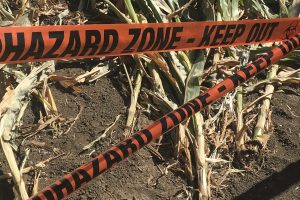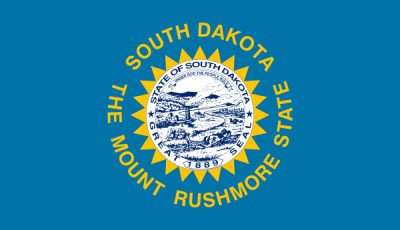Utah Bill Would Label All Porn in the State “Harmful”
 A new bill proposed by Utah’s Republican Rep. Brady Brammer would require all pornography in the state of Utah to carry a warning label similar to that found on cigarettes. It would be displayed on all smutty physical media sold in the state and be displayed for fifteen seconds before sexy videos and images online.
A new bill proposed by Utah’s Republican Rep. Brady Brammer would require all pornography in the state of Utah to carry a warning label similar to that found on cigarettes. It would be displayed on all smutty physical media sold in the state and be displayed for fifteen seconds before sexy videos and images online.
Under the title “State of Utah Warning,” the label would read: “Exposing minors to pornography is known to the state of Utah to cause negative impacts to brain development, emotional development, and the ability to maintain intimate relationships. Such exposure may lead to harmful and addictive sexual behavior, low self-esteem, and the improper objectification of and sexual violence towards others, among numerous other harms.”
Unlike labels on cigarettes, however, Brammer’s warnings would not be backed by years of irrefutable scientific research. Instead, it’s backed by Utah’s ridiculous “porn as a public health crisis” hysteria, which kicked off in 2016 when Governor Gary Herbert signed a resolution declaring porngoraphy “an epidemic that normalizes violence against women and children and makes men less likely to want to get married.” That resolution sparked a trend in conservative state governments nationwide, over a dozen of which have now adopted similar resolutions which have, up until now, remained dormant and relatively useless.
For the record, Utah enjoys porn just as much as anywhere else. Back when the resolution was initially passed, Pornhub took a look at the state’s smut-viewing habits: Utah ranked 34th in US traffic to the site, enjoyed cosplay porn 116% more than other states, and spent an average of 9 minutes and 15 seconds on the site per visit (36 seconds less than the national average).
The Free Speech Coalition, ever a voice of reason, has pointed out that this label would be a violation of the First Amendment. Spokesperson Mike Stabile told The New York Times that such a label “would violate the First Amendment because it would require producers to communicate a specific message. ‘You can’t force someone to say something,’” he said. “Warning systems like those for rating movies with an R or PG-13 are different because they are voluntary.”
Marina Lowe, legislative and policy counsel for the the American Civil Liberties Union of Utah, told the Salt Lake Tribune, “The bill talks about exposure to material that may or may not have constitutional protection,” and added that enforced porn labeling could have a “chilling effect” on constitutionally protected speech.
The bill has yet to clear the legislature, and as of now it’s not clear how Utah expects this labeling to work for porn distributed online. The bill aims to fine the producers of pornographic material for infractions, but most videos viewed online are not made available for consumption based upon what state the viewer is in. Does Rep. Brammer want every pornographic video on the entire internet to carry the label, just in case someone in Utah watches it? And if so, do these legislators know about the “skip ahead” function that applies to literally every video on the internet?
And, perhaps the cap on this bizarre piece of proto-legislation: The bill doesn’t purport to actually define what counts as “pornography.” (Much less “obscenity,” which is actually a legal term that Rep. Brammer has been throwing around pretty indiscriminately in media interviews.) That definition “would be decided in court if a lawsuit is filed under the law,” reported The New York Times. Brammer believes, “The law wouldn’t regulate the content itself, so doesn’t violate free-speech rights.”
But FSC’s Mike Stabile believes, “The Utah bill is broad enough that it could cover everything from the TV show Game of Thrones.”
We here at YNOT hope this bill dies on the floor of the Utah House of Representatives.













